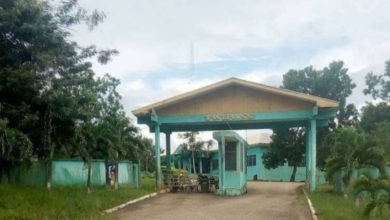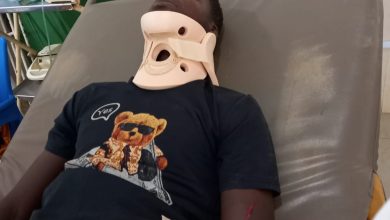Germany matches DNA from skulls stolen from African colony to living relatives
Source: theguardian.com

Researchers in Berlin have identified living relatives of people whose remains were stolen from Tanzania and taken to Germany for “scientific” experiments during the colonial era.
Berlin’s Museum of Prehistory and Early History has been carrying out research since 2017 on about 1,100 skulls taken from what was then known as German East Africa.
The museum announced on Tuesday that DNA analysis had provided a clear link to living descendants in Tanzania, hailing the find as a “small miracle”.
“The relatives and the government of Tanzania will now be informed as soon as possible,” the museum said in a statement.
The skulls are part of a collection of about 7,700 that were acquired by the museum from Berlin’s Charité hospital in 2011, the museum authority said.
Many of them were part of a collection assembled by the doctor and anthropologist Felix von Luschan during German colonial rule.
The remains are thought to have been looted from cemeteries and other burial sites around the world and brought to Germany for “scientific” experiments.
German East Africa included present-day Burundi, Rwanda, mainland Tanzania and part of Mozambique.
The museum said its researchers were able to gather enough information on eight of the skulls to merit a search for specific descendants.
For one skull, a complete genetic match was found with a man still alive today.
The title “Akida” on the skull indicated that it belonged to a high-ranking adviser to Mangi Meli, a powerful leader of the Chagga ethnic group in the late 1800s.
The DNA sample provided a direct match with a descendant of Akida, the museum said.
An almost complete match to descendants of the Chagga people was also confirmed in a further two of the eight skulls examined.
Hermann Parzinger, the president of the museum, said: “Finding a match like this is a small miracle and will probably remain a rare case even despite the most meticulous provenance research.”
Over the past 20 years, Germany has been gradually starting to talk more about the crimes it committed during the colonial era.
In German South West Africa, now Namibia, Germany was responsible for mass killings of Indigenous Herero and Nama people in what many historians refer to as the first genocide of the 20th century.
Germany has returned skulls and other human remains to Namibia that it had sent to Berlin during the period.
In 2021, Germany officially acknowledged that it had committed genocide in Namibia and promised €1bn in financial support to descendants of the victims.
Theguardiain.com























